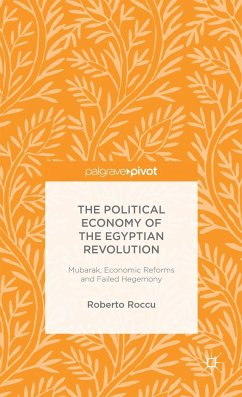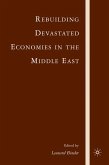While the 2011 Egyptian revolution has already become the subject of much debate, the roots of the socio-economic context which made the revolution possible have seldom been explored. Roberto Roccu addresses this gap and in doing this provides the first detailed study of the deeper causes of the Egyptian revolution. Relying on an innovative understanding of Antonio Gramsci's thought, He argues that economic reforms implemented since the late 1980s provided the conditions for both the emergence of a capitalist oligarchy within the regime and an unprecedented rise in socio-economic inequality in society at large. These two processes substantially eroded any remnants of hegemony, leaving the Mubarak regime ill-equipped to face the global economic crisis. By alienating sections of the ruling bloc while impoverishing vast strata of the population, neoliberal reforms provided a necessary, although by no means sufficient, condition for the Egyptian revolution to occur.
"By looking at Gramsci through a sophisticated and less usual political economy lens, Roccu has written a brilliant and convincing reconstruction of the short-lived honeymoon between Egyptian elites and neoliberalism in the 2000s. This book offers a fresh perspective from which to understand some of the reasons behind Mubarak's fall in 2011 as well as some suggestions for reading the most recent events in Egypt." - Gennaro Gervasio, British University in Egypt
"This is a fluently written and convincing account of the ways in which neoliberalism plays itself out through the structures of the Egyptian state. Dr Roccu's confident and authoritative use of a Gramscian perspective to examine and explain the unraveling of Mubarak's political hegemony casts new light on the causes of the uprising of 2011. At the same time, it serves as a reminder of the lasting importance of Gramsci's thought. This is all the more necessary as the turmoil and violence of Egyptian politics continue to illuminate the troubled conditions of decayed hegemony." - Charles Tripp, SOAS, University of London, UK
"This is a fluently written and convincing account of the ways in which neoliberalism plays itself out through the structures of the Egyptian state. Dr Roccu's confident and authoritative use of a Gramscian perspective to examine and explain the unraveling of Mubarak's political hegemony casts new light on the causes of the uprising of 2011. At the same time, it serves as a reminder of the lasting importance of Gramsci's thought. This is all the more necessary as the turmoil and violence of Egyptian politics continue to illuminate the troubled conditions of decayed hegemony." - Charles Tripp, SOAS, University of London, UK








